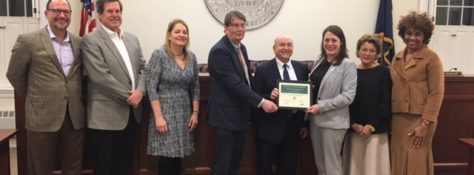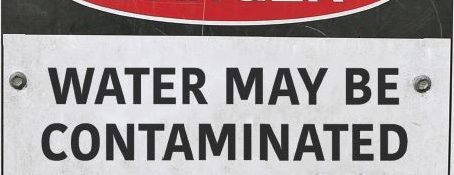News
Along with Sustainable Westchester, we recently presented a Gold Certificate recognizing the Town of Bedford in Westchester for being a leader in greening the town’s municipal fleet of vehicles pursuant to our Zero Emission Vehicle (ZEV) Pledge.
Learn MoreNews
The Metropolitan Transit Authority (MTA) is embracing solar power in a new initiative that will help fight greenhouse gas emissions and give the authority a new income stream to improve public transit. It plans to lease more than 10 million square feet of its rooftop space to solar power generating companies.
Learn MoreNews
The new single-use bag law gives counties and cities the option to opt-in to a five-cent fee for paper bags, which would further reduce litter and solid waste pollution and substantially lower carbon emissions from producing paper bags. Some local governments in New York have already voted in favor of the fee, while others have either opposed it or are still deliberating.
Learn MoreNews
Traffic is a notable problem in New York as mass transit is becoming riddled with delays, signal failures, and decades-old infrastructure. Congestion pricing would raise much-needed funding for long-term improvements to the region’s transit system, reduce air pollution and greenhouse gas emissions from cars, and decrease traffic congestion by encouraging the use of public transportation.
Learn MoreEvent
We hope to see you at our Westchester Cocktail Party! We are excited to honor Sustainable Westchester. You'll get to hear
Learn MoreNews
Over the last fifty years, there has been a major increase in extreme weather, such as heat waves, droughts, and intense hurricanes. One of the most direct ways we experience the effects of climate change first-hand is when our communities are hit with extreme weather - and we can expect extreme weather events to increase in frequency and severity over time.
Learn MoreNews
Technology and digital innovations have had a positive impact on our environment - we have the internet to thank for a large reduction of paper and waste. But these innovations can also have negative impacts that we should be aware of.
Learn MoreNews
Earlier this year the U.S. Department of Health and Human Services’ Agency for Toxic Substance and Disease Registry (ATSDR) found that toxic chemicals in drinking water can be harmful at much lower levels than the EPA previously reported as safe. Newly disclosed e-mails between members of the EPA revealed that the agency tried to keep this information hidden to avoid conflict with the public and a negative reaction from the media.
Learn More


